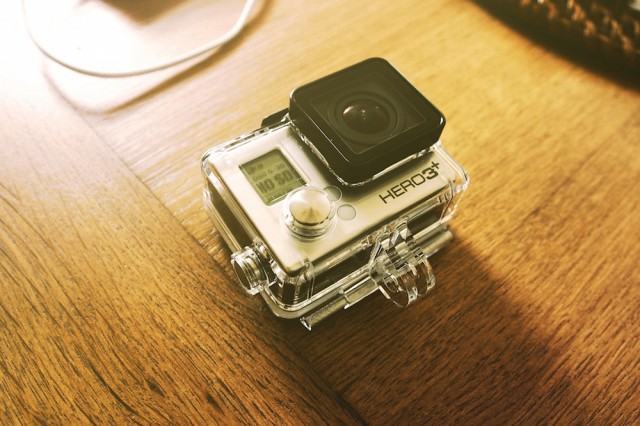Going Off-Brand

Our pal John Herrman has a piece this week in Matter about how he switched from his defunct $650 iPhone to a mid-market $76.14 “shitphone” where he had the ability to do nearly everything his former phone did: listen to music streamed from the internet, mess around with apps like Twitter and Instagram, use Google maps for directions, and answer emails. It wasn’t a seamless experience — he found that typing was awkward and that the apps often lagged or shut down completely — but he begins a conversation about why we buy the things we do (especially when it comes to gadgets), and how technology moves at a quick enough pace that formerly high-end products become ubiquitous, mass-market “shitworld” items that can be bought at a reasonable price if you don’t mind going with an off-brand item. Here’s a good quote:
Off-brand electronics are, like their branded counterparts, interesting for a limited amount of time: The highest-end branded version of a product offers a chance to taste the luxurious future of technology; the shitworld version lets you preview a more practical future — the future most of the global electronics-buying public will actually enjoy. Take the Jambox, a small and dazzlingly expensive prism of speakers and battery and wireless radios that plays music from nearly any phone at a respectable volume; it was a sensation for a few years after its introduction in 2010. By 2013, off-brand speakers were making major inroads online, allowing shoppers like me to feel like we were somehow gaming the system (this requires, of course, a narrow and convenient definition of “the system”). The year after, Amazon, America’s primary portal to consumer electronics shitworld (and recently one of its proud citizens), had released its own version of the Jambox concept under the pointedly dull name “AmazonBasics Portable Bluetooth Speaker” (731 customer reviews, 4.4 stars). Soon, basic picnic-ready wireless speakers may become an undistinguished, disposable part of many consumers’ lifestyles, like USB sticks or batteries — a point at which branded versions are a minority sustained only by those consumers looking for Bluetooth speakers that signify luxury, style, or taste. Off-brand electronics are alluring only when they feel like deals — that is, only as long as there are more popular branded alternatives which they can imply are overpriced. They’re interesting, in other words, for as long as they make the buyer feel smart.
This sentiment is echoed a little bit in the most recent episode of Planet Money when reporters David Kestenbaum and Robert Smith go through the list of the top 10 most shorted companies (for the uninitiated: a short being a bet that a stock will go down). The No. 1 shorted company? GoPro, the extremely popular maker of cameras that you can mount anywhere. And why is GoPro on the list? According to John Hempton, a hedge fund manager at Bronte Capital who is fairly well known for shorting companies, the answer is the toaster:
HEMPTON: There’s a reasonable chance that in three years, somebody makes a GoPro-type camera that’s just as good as a GoPro, is just as attractive to my 14-year-old kid who mounts it on the bike and wants to play with it, and it costs $50. And like most technological devices, eventually the price collapses to the point that it’s a toaster. I have a joke that every technological device eventually becomes a toaster.
KESTENBAUM: A toaster is something that lots of companies make and that no one can make much money off of because they all toast bread pretty well.
In other words, we may all be waiting for when the “shitworld” version of the GoPro arrives.
It can make a lot of sense to buy a high quality, pricey consumer object in some instances: a really nice coat or piece of luggage can last for years and years. But the next time I consider an electronic item, I’ll look at what’s available off-brand rather than immediately looking at what’s most popular. As John notes: “iPhones are really just shitphones from the future.”
Photo: Andreas Kambanis
Support The Billfold
The Billfold continues to exist thanks to support from our readers. Help us continue to do our work by making a monthly pledge on Patreon or a one-time-only contribution through PayPal.
Comments